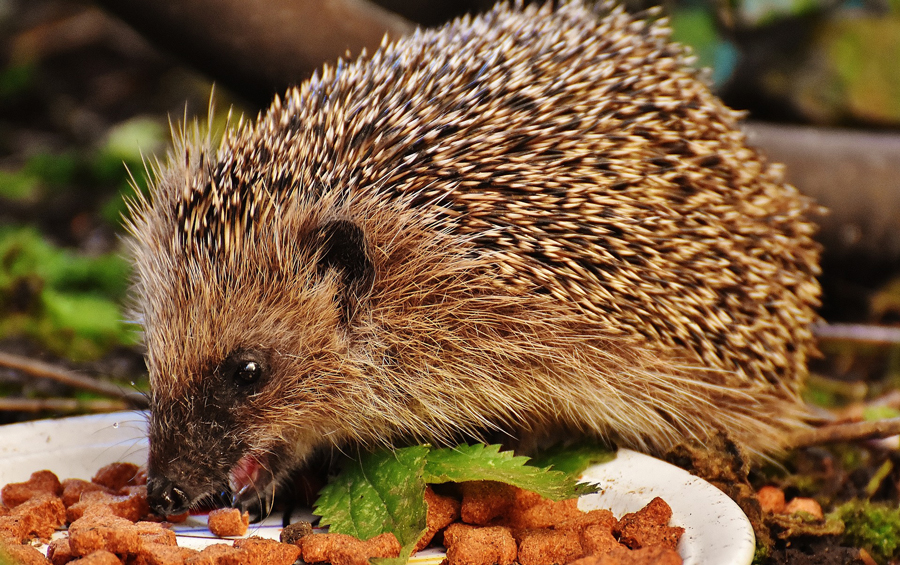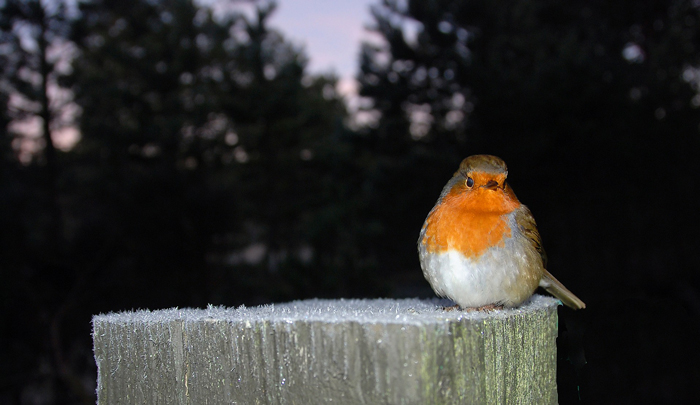Caring for garden wildlife this winter
Although we don’t use our gardens as much during the winter months it is still important to take steps to look after the wildlife that will be visiting us throughout the autumn and winter.
Dobies, retailers of garden plants and other garden essentials, have provided some tips on how to ensure that your garden is still accommodating to wildlife visitors during harsher conditions.
Protecting birds
In the harsher months, birds can struggle to keep their energy up and remain warm. Fatty foods can help with this, with one thing that you can do is leaving out fat blocks in wire cages. These could be made with lard and packed full of goodness for birds, such as fruit, seeds and dried mealworms. For smaller bird such as wrens, search your kitchen for some scraps and leave out finely chopped unsalted bacon rind and grated cheese.
Some ground-feeding birds struggle to find food due to frost, so place seeds or fat balls on a wire mesh just off the ground to help them.
When temperatures begin to drop, ponds and other water sources can become frozen over. This may be the only water source for birds to drink and bathe in – hindering their hydration and hygiene. Therefore, leave out a dish of water or even an upturned bin lid with water in for birds to enjoy.
As winter comes to an end, clean out your bird boxes so they are ready for the new breeding season.
Helping the hedgehogs
In difficult conditions, weak hedgehogs are spotted during the day in gardens and through the streets. Signs like these suggest that hedgehogs often struggle to find sufficient food and water when it gets frosty.
You can leave out a dish of water for hedgehogs to prevent their dehydration. To feed hedgehogs and keep their energy up, you could also leave out meat-based dog or cat food which will help fatten them up for wintertime.
With bonfire night approaching too, make sure that you check piles of wood and twigs for hedgehogs before lighting.
Keeping your chickens safe
Many homeowners have chickens in their gardens or allotments. With frostbite and heavy rain, winter can prove troublesome for these animals. There are things that you can do to make sure your chickens are as healthy as they can be:
• Check for leaks in your coop – you can repair any holes with plywood, or if it is time for a new coop, purchase from garden retailers such as Dobies.
• Insulate windows well in order to capture heat during the day and keep the coop warmer for longer when the dark nights arrive.
• Coat chickens’ combs and wattles in petroleum jelly to help protect them from frostbite.
Other creatures
There are many other creatures inhabiting in your garden that could benefit from your help too:
• To prevent frogs from suffocating, float a tennis ball or something similar in your pond to stop it from freezing over.
• Leave your grass to grow long over winter and cut it again in the spring. This will let butterflies and insects shelter from the weather.
• Piling up rocks, twigs and rotting wood can create a shelter for insects who might not survive otherwise.
• By planting seed that will flower in the winter, you can provide a food source for bees that may be making their way to a nest.
This winter, if you can carry out the suggested tips, you will see wildlife thriving in your garden all year long. You will also be helping animals survive that may not have been able to without you.



